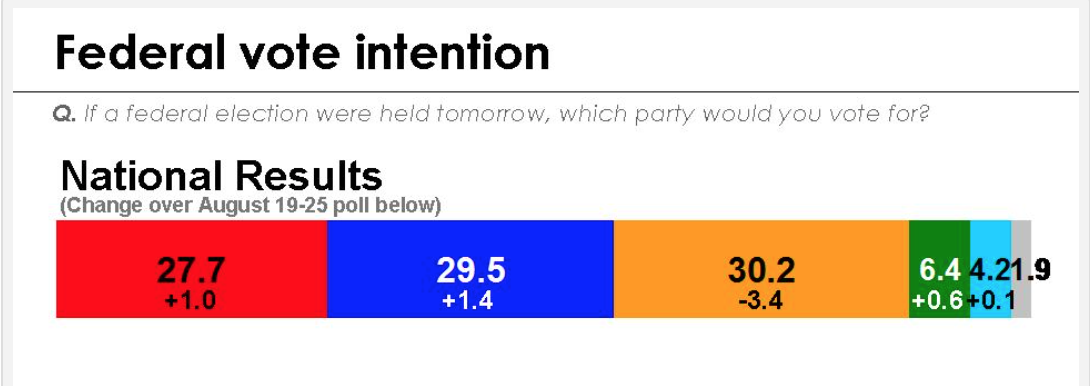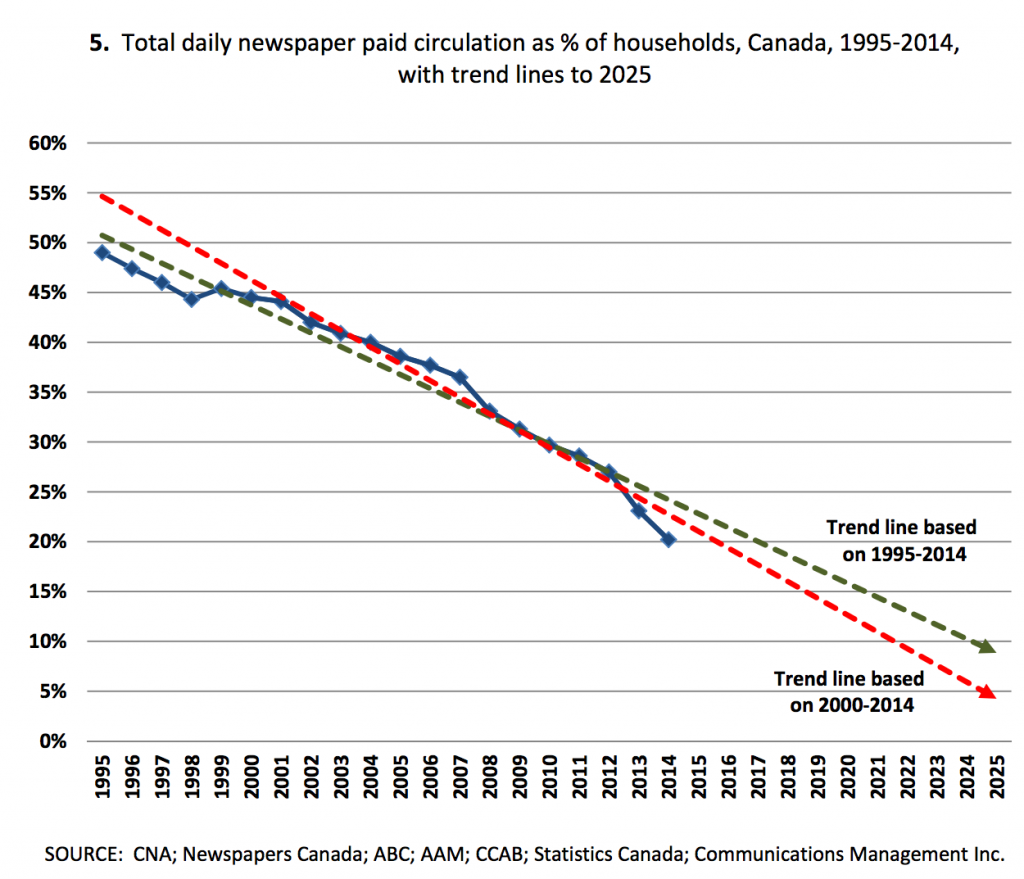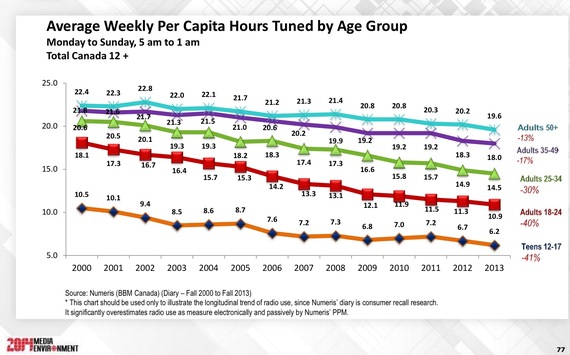I think we, all of us, both overestimate and underestimate the media.
The media is not and never, ever was the "voice of the people." It is, as it always was a business ... sometimes, at its
public service best,
compelling, even brave, and it can change how we see and respond to the great issues of the day; at other times, when the media is at its worst, e.g. when Caitlyn Jenner "came out," celebrity gossip "owns" the daily news, blacking out the real news. Mostly the media is in the middle: trying to entice us to buy the paper or watch the broadcast by offering a mixture of information and titillation ~
infotainment.
Journalists, many of them, anyway, are honest, hard working people who really believe that they are
public servants in the best and broadest sense of that word. They believe that an informed public is "better" ~ better at making the right decision for the greater good of all. (Of course a few journalists are nothing more than pompous, air-headed windbags, but that's the same in every profession or occupation, including the military, and I suspect the ratios are about the same in journalism, law, engineering, medicine and the military, too.) But the media is more than journalists, good and bad, it is a business with printing presses and TV studios and broadcast towers and satellites and bank loans and bonds and obligations to owners and shareholders ... and points of view.
Some journals (and broadcast networks, and, and, and ...) wear their points of view on their sleeves as badges of honour: see the
Toronto Star's famous
Atkinson Principles:
Toronto Star people, including all the working journalists, are expected to "conform" in all they do at the paper. The
CBC has its own
Journalistic Standards and Practices which include Accuracy, Fairness, Balance, Impartiality and Integrity. Your views and the
Toronto Star's or
CBC's views on how well they meet those standards might differ, and that's fair because they have points of view when they
inform us ~ tell us the stories, as they see them ~ and we have points of view, too, when we process that information.
All journals, newspaper chains, radio and TV stations and networks share one common, sometimes overwhelming problem: income. The media is a business and it's not the easiest or most profitable of businesses. It costs money, big money, to publish
The Economist or for the BBC to broadcast worldwide; it also costs money to run
CFSO, a small, independent TV station in Cardston, Alberta and to publish the
The Tyee in BC. The need to make money can, does and will effect the editorial decisions that media outlets, giant networks, prestigious journals and small, independent outlets alike, make. They will tell us what we want to hear: that's why, for example,
Report on Business and the
Financial Post have separate editorial boards from the
Globe and Mail and the
Financial Post, respectively: they want to make sure they tell their target audiences what they need to know, what they want to hear ... otherwise their subscribers and the people who put coins in the box every day will look (pay) somewhere else. That attitude
leaks over to the "news" business, too ... that's why Caitlyn Jenner's "coming out" was more important than e.g. the fact that, in the USA, the
Patriot Act expired but the congress passed a new, "better" (more draconian) law or that a cruise ship capsized in Asia killing hundreds or that over 1,000 people died of heat related causes in India: Caitlyn Jenner was more
interesting to more people so the business of journalism
informed us about what most of us (a plurality, anyway) wanted to hear.
So it is with political journalism, and so it has been since the 18th century, and probably farther back than that.
Stephen Harper is no different in how he "treats" the media and, therefore the public, than was e.g. John Fitzgerald Kennedy a half century earlier. Conservative media manipulation in Canada is no different in either detail or extent than what JFK's rich dad, Joseph P Kennedy did in the 1960 election campaign ... you can pretend what Harper is doing is new or worse, but your fooling yourself.
That the media, broadly and generally, is
biased is undeniable. But, it is not all biased in any one direction: there are journalists and outlets to suit every political taste.
Prime Minister Harper is no fan of the media; he treats them with contempt and he doesn't try to sugarcoat it; and they, many,
but not all, of the people in the media, respond in kind. It was, however the same for Jean Chrétien and Brian Mulroney and Pierre Trudeau, whose contempt for the media was nearly legendary, even as he courted them shamelessly. The "courting" worked and it is,
I think, why some politicians do well with the media and others do not.
It all began, I think, around 1960, when BIG television was young and so was the "spin doctoring" business. TV gave the media a new, unprecedented, access to the homes of Americans and Canadians and the journalists became stars and they began to see themselves as a
filter through which politicians needed to be seen. John Kennedy, Ronald Reagan, Barak Obama and Pierre Trudeau were/are all excellent "users" of the media (and so were Eisenhower and St Laurent, in an earlier, less confrontational era) and the media responded well to their "use." Lyndon Johnson, Richard Nixon, Jimmy Carter, George W Bush and, today, Stephen Harper do not "use" the media well, at all, and they pay a price.
I believe that our media is, mostly, of a low standard ~ not universally, there are plenty of good, hard working, fair journalists, the ones who want top
inform us, in all parts of the media, including e.g. the CBC ~
I think too many,
not all, journalists are poorly educated (not enough math or history or economics) and lazy (the latter attribute is why so many corporate press releases become "new stories") and
I think that's why most of the Canadian media "spun" a tragic human interest story into a phoney political scandal. And that's not Stephen Harper's fault.





